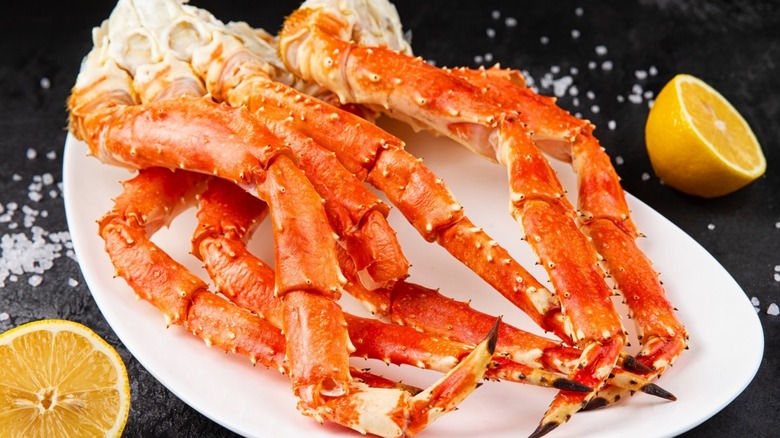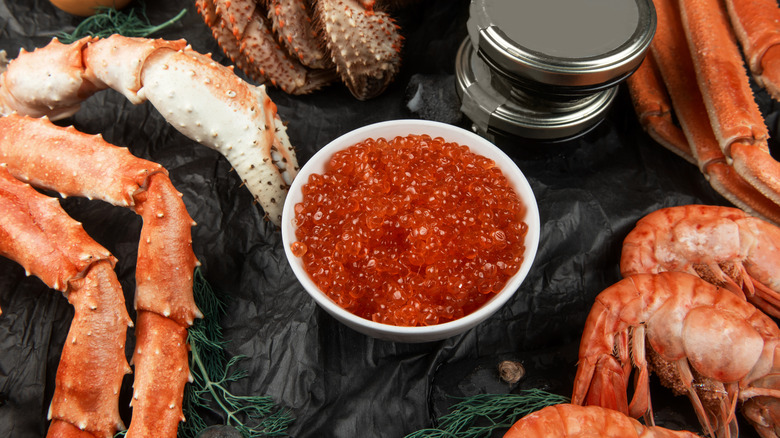The Luxury Seafood Facebook Scam, Explained
Prior to the pandemic, the customer base at Regalis Foods consisted exclusively of big-city chefs stocking up on crates of black truffles, caviar, heirloom chocolate, and other Michelin-grade food items for their weekly programs. In 2020, when fine dining restaurants pivoted away from amuse-bouches adorned with tweezer-placed saffron strands in favor of dishes with cheaper and more readily available ingredients (such as hamburgers, which saw a resurgence on takeout menus across the board during those fraught early months), Regalis Foods decided to extend its culinary delights to the people. The company launched its online shop for the first time, and while it was able to stay afloat this way, Eater reports that this new business model brought on a spate of online scammers looking to nab sensitive customer info.
And where do scammers go to lure in fresh blood with enticing fraudulent ads? Social media, of course. According to Eater's interview with Regalis Foods founder Ian Purkayastha, the company got word of over a dozen copy-cat websites on the loose at the turn of the new year. The scammers' main target? Facebook users.
Scammers have brought in more than $200,000
Eater reports that, as of August 2022, over 1,000 customers have made purchases through fraudulent links to seafood "deals" from the luxury purveyor Regalis Foods — such as caviar, Maine lobster, and Alaskan crab legs — advertised on Facebook. Ian Purkayastha, who owns Regalis, estimates that scammers impersonating his website have brought in "more than $200,000" since popping up at the start of the year.
Now, there's a post on the company's Facebook page: "Scam sites imitating Regalis have been soliciting credit card information without fulfilling orders. Regalis DOES NOT accept payment via PayPal, so any website accepting PayPal is a scam." Eater notes that some victims have called Regalis Foods with threats of violence regarding their unfilled orders, so hopefully this warning will inform those people and prevent future fraudsters from succeeding.
If this all sounds familiar, it's because Facebook scams are nothing new. According to a report from ProPublica, global scams across the network's Facebook Marketplace "[revealed] how Facebook failed to safeguard users." And oddly enough, seafood scams (not to be confused with seafood fraud) have also been an issue on Facebook since before the Regalis Foods fiasco. For instance, a 2021 post in Tech ARP warns Facebook users of fraudsters who "offer online seafood delivery at very attractive prices" on the social media platform and then "ghost" after obtaining victims' bank info. Facebook allegedly "declined to take action" back in 2021, which appears to also be the case for the Regalis scams.

